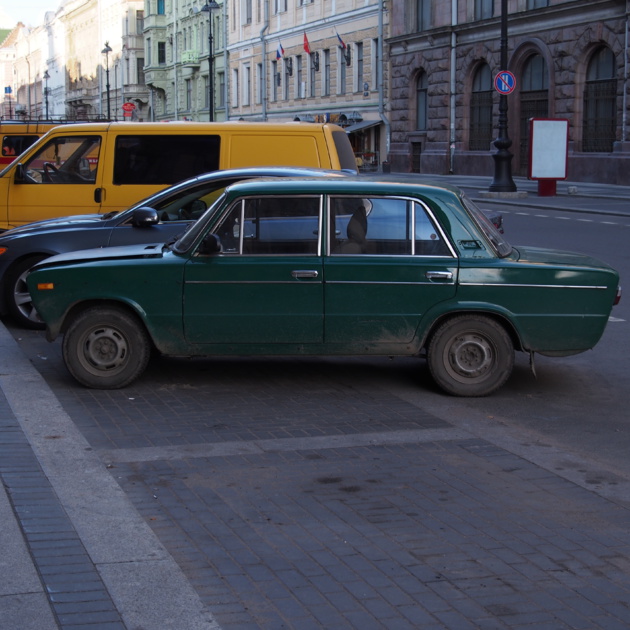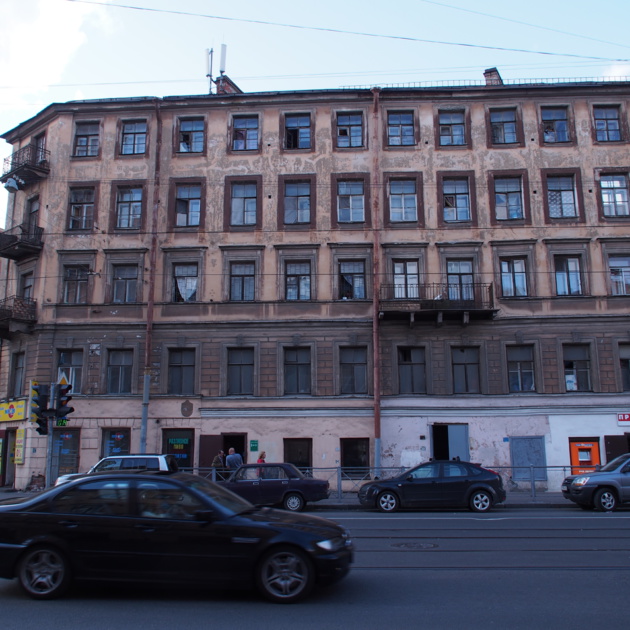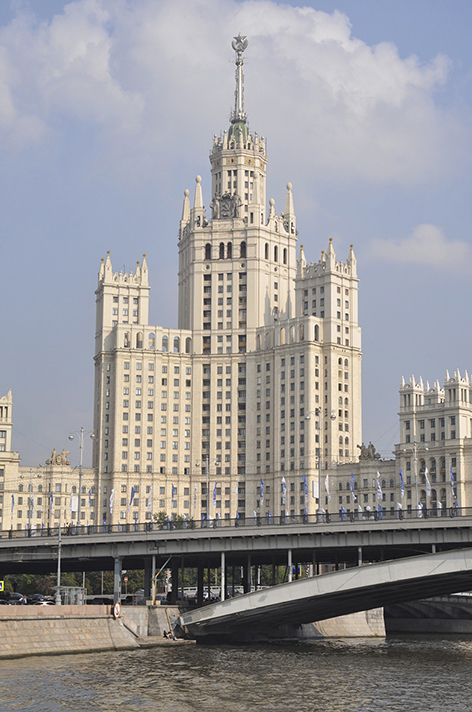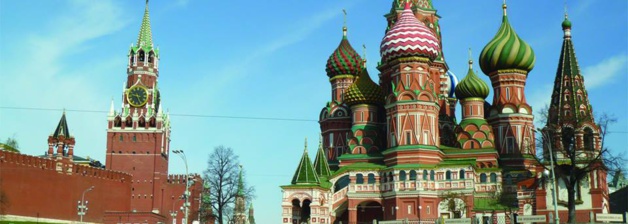
Cathedral of Saint Basil the Blessed in Red Square, Moscow. Photo Credit: Pauline Martin
When one enters Moscow, the first impression is of the overwhelming gigantism. Remarkable and immense buildings illustrate the glory of Russia’s past. In the midst of these concrete giants, soulless marks of communism, are architectural wonders. The Kremlin and Red Square are, for example, the only survivors of communist destruction. Modernism does not seem to exist in Moscow. In its place, large blocks of perfectly aligned and identical windows which give the idea of identical replica apartments. As the visit progresses, the impression of being witness to the excesses of Stalin progresses.
The sense of insecurity reigns, for example the omnipresence of the police in the capital’s streets. Moscow is still a city that hides poverty from all eyes. The more one explores the city, the more one finds uninhabited dilapidated buildings, or non-renovated with broken windows. Many Moskvitch, regulatory Communist cars, are still in the streets, reinforcing the divide between the extreme wealth and extreme poverty which makes up the atmosphere in the city. Russian architecture is not the only thing to display Russia’s difficulty of moving with the times.
The all-powerful president
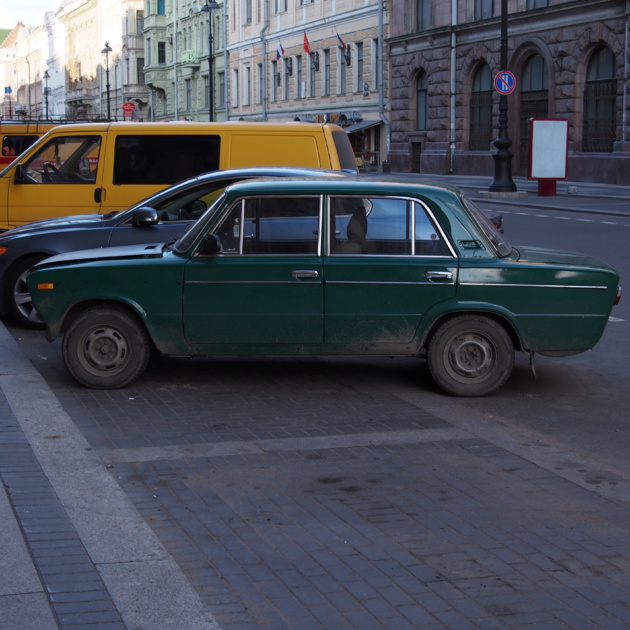
In 2012, Vladimir Putin was elected with 63% of the vote in the first round. Thus, the President’s position is an all-powerful one. Commander in Chief of the armies, the President is charged with leading his government. He appoints all the judicial officials as well as the Attorney General. He also has the power to vote in laws without the support of the houses, and the ability to pass a veto regarding the laws of the Parliament. Parliament can do no more than initiate a procedure of impeachment in case of disagreement with the President, but this lengthy procedure has never once been completed. The Russian President thus has control over the executive and legislative powers.
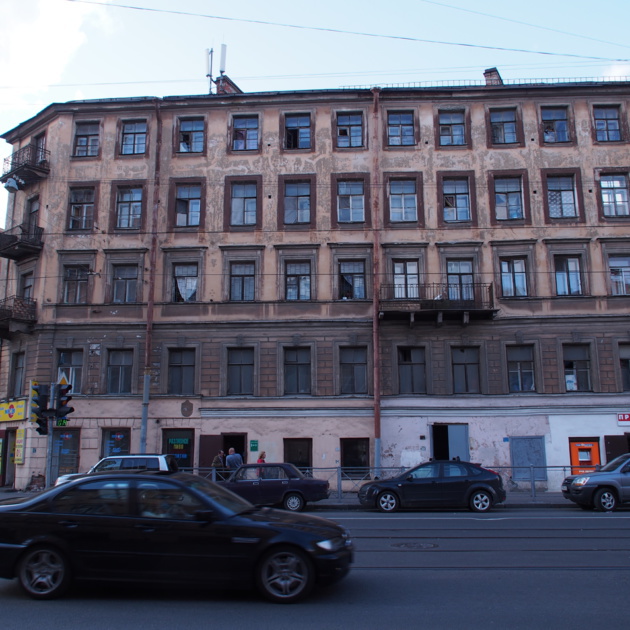
However, even if he ‘shines’ on the international stage with, for example, his actions in Ukraine to retake Crimea, Putin neglects the rights of his citizens. For example, freedom of expression is reduced to the bare minimum, the internet is not free from his control. For example, Facebook and Youtube are strictly regulated. (1) Formerly of the KGB, Putin nevertheless claims a democratic regime recognized by the European Court of Human Rights. However, this gigantic country is divided and the rights of intellectual property and material rights are violated.
Moscow: City of Corruption
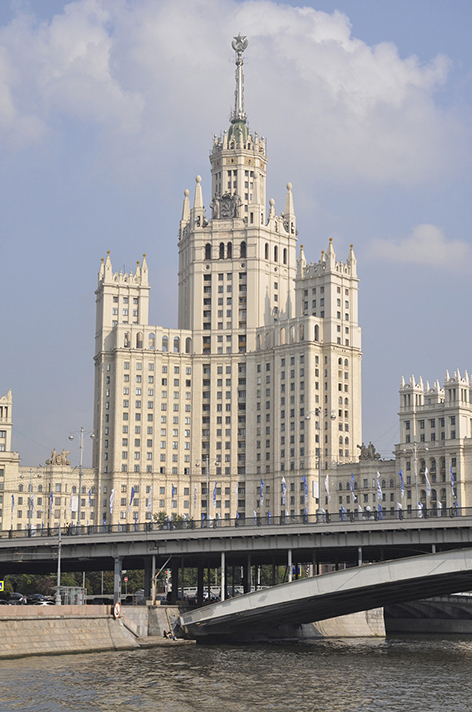
Those who go to jail are the ones who do not have enough money. Russian legislation is not taken seriously despite Putin’s efforts to democratise the county, everyone living by their own rules. The laws are too numerous and are not strictly enforced: for example the law for the protection of intellectual property that is used to authenticate a product as “real”, but nevertheless the controls are still difficult given the size of the country. The tribunals are largely influenced by the government itself, but also by the Mafia. Today, 30% to 50% of Mafia profits are spent on bribes paid to the senior officials of the Tax Administration, the Militia, the judicial system and even the government according to estimates. Thus, corruption is a part of the entire judiciary, economic and political system of Russia, Putin and the Mafia sharing power.
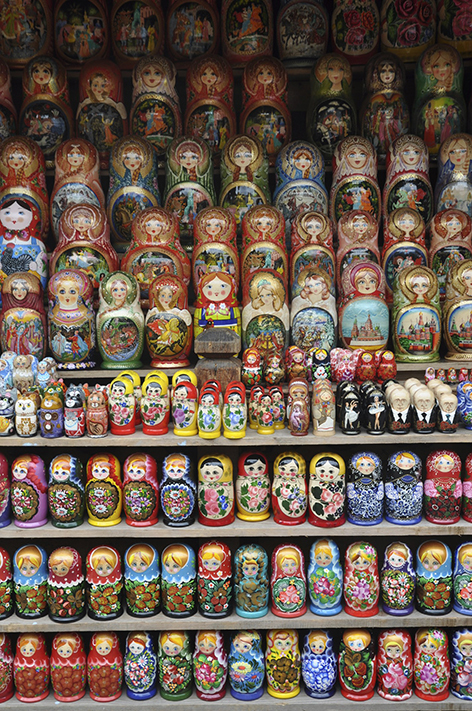
Moscow remains a city that had its heyday before the Cold War. The power of the city is reflected in every construction and every institution. However, the political, judicial and geopolitical systems show a Russia that is struggling to advance and rests on its laurels still. Majestic, this city, the riches it has to offer are too little known by tourists.
(1) Facebook and YouTube were not removed but are strictly regulated.















